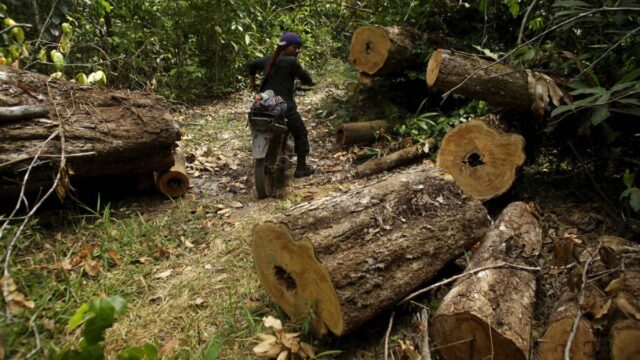The Low Tatras is a forest area rich in beech and spruce that is being cut down by several mining companies due to a pest problem. However, many activists have seen this logging as a warning light that only serves the needs of these companies.
In the Low Tatras of Slovakiapeople protested against mining in the town of Studienec, an area previously proposed for strict forest protection. The state forest administration claims that the objective is to eliminate stands infested by insects. However, according to conservation activists, mining industries are also cutting down healthy spruce and beech trees 200 years old.
Ondrej Kameniar, from the We Are the Forest initiative, said: “In this pile we can see from afar that not only fir trees infested by lycophytes were harvested. Fir and beech trees were also cut down. At first glance they don’t seem that big, but they are actually very old. “This tree was at least a hundred years old.”
The Slovak forest administration argues that: “The calamity can only be stopped by eliminating already infested individuals.” He further argues that the infestation in its initial phase may not be recognized externally and a layman could identify those cases as healthy trees.
Marek Kuchta, former Director of the NAPANT Administration and member of the We are the Forest initiative, expressed his concern: “This is already one of the most valuable sites that should have been added to the national park as part of the zoning. To these stands of fir trees are linked many species that are protected. So there certainly has been damage to the habitat of these protected species.”
Legal and permitted logging only in some areas and with certain conditions
NAPANT commented that only allowed logging random fir trees in the town of Studienec, with the condition that it be carried out using the most sensitive felling method possible. The administration allowed the felling of other trees only on the funicular cable car.
Juraj Vysoký from the Prales civic association emphasized: “The primary function here is not economic, but protection of the land. Within this, there was a prescription without intervention. In such forests, trees are felled individually at most, but in no case should any continuous area be cleared.”







